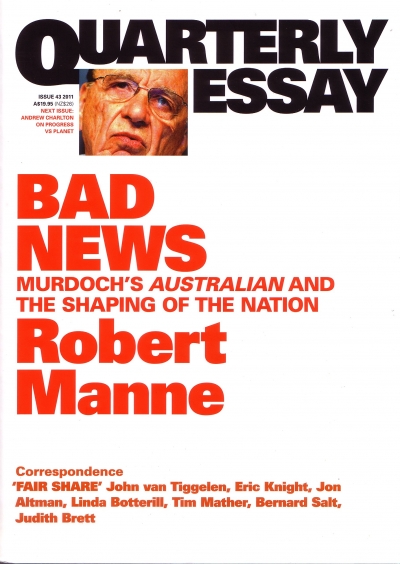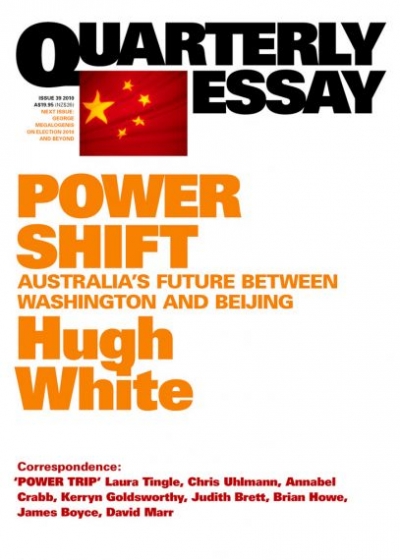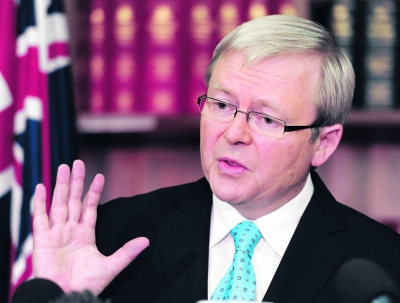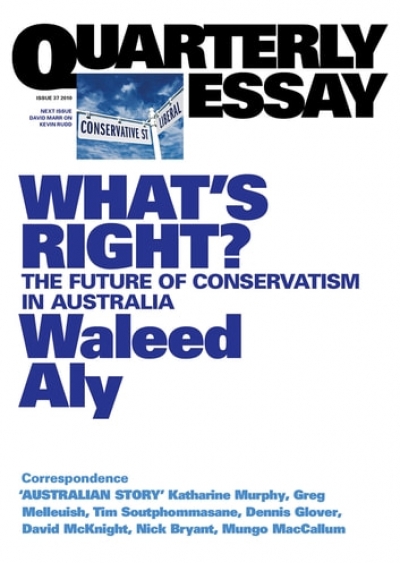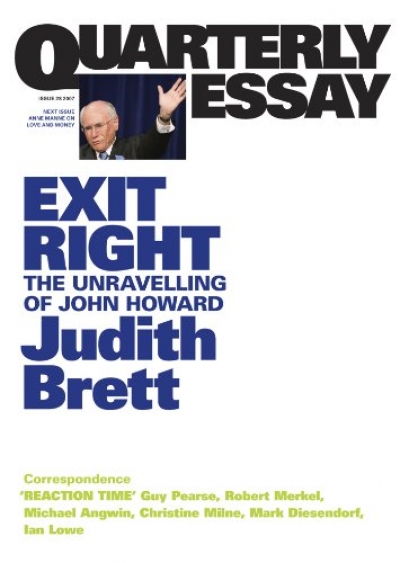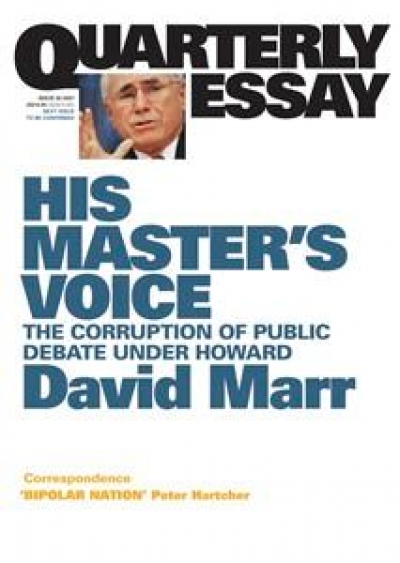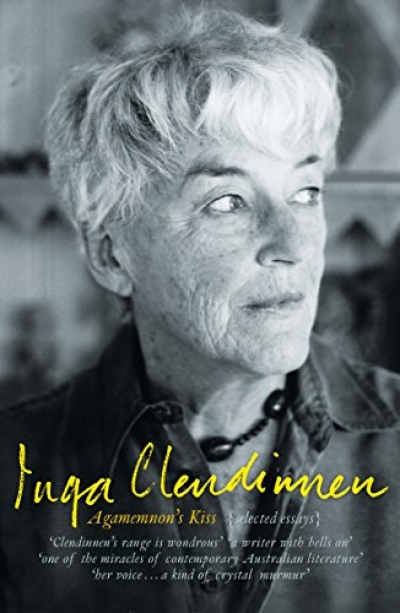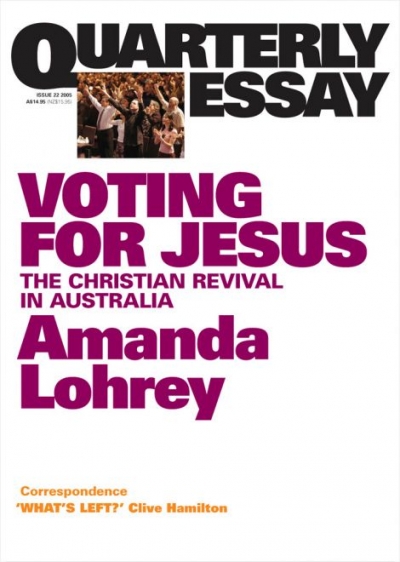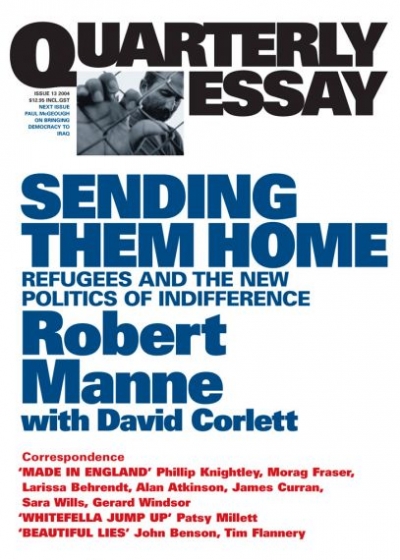Quarterly Essay
Bad News: Murdoch’s Australian and the Shaping of the Nation (Quarterly Essay 43) by Robert Manne
Power Shift: Australia’s Future between Washington and Beijing (Quarterly Essay 39) by Hugh White
The political assassination of Kevin Rudd will fascinate for a long time to come. As with Duncan’s murder in Shakespeare’s play it was done, as Lady Macbeth cautioned, under ‘the blanket of the dark’, literally the night of 23–24 June 2010. The assassins heeded Macbeth’s advice: ‘if it were done when ’tis done, then ’twere well it were done quickly.’ And as in Macbeth, the assassins were in the shadow of the throne. Even the old king approved: Bob Hawke, himself deposed in 1991, recognised at last that the removal of a Labor prime minister is sometimes necessary.
... (read more)What’s Right? The future of conservatism in Australia (Quarterly Essay 37) by Waleed Aly
Exit Right by Judith Brett & Poll Dancing by Mungo MacCallum
His Master’s Voice: The corruption of public debate under Howard (Quarterly Essay 26) by David Marr
Agamemnon’s Kiss by Inga Clendinnen & Quarterly Essay 23 by Inga Clendinnen
Quarterly Essay 22: Voting for Jesus: Christianity and politics in Australia by Amanda Lohrey
ABR goes to London
Hot on the heels of our inaugural ABR Forum in Canberra on March 28, when a capacity audience attended the session on life-writing at the National Library, ABR will host its first event in London on Tuesday, June 8. Peter Rose and Morag Fraser will present an evening of readings and ideas, with special appearances by Clive James and Peter Porter. We’re delighted to be able to present this special event in association with the Menzies Centre for Australian Studies, Kings College London. The event will run from 6 to 8 p.m. Bookings are essential: please direct them to This email address is being protected from spambots. You need JavaScript enabled to view it.. ABR has many subscribers and supporters in the UK; we look forward to meeting them – and to reaching new ones.
... (read more)
